If I Forget Thee
If I Forget Thee...
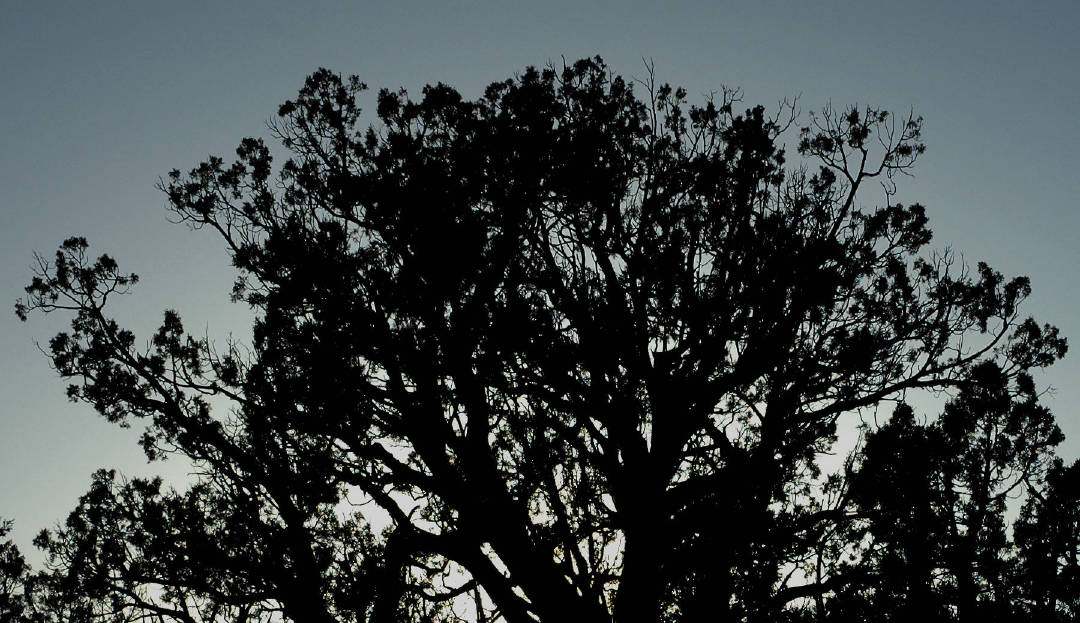
March 26, 2008
It was time. We had spent too much of it already with this damn foolishness and we didn't have enough left to do all those things that seemed important. Like getting somewhere. Like doing something. Like being something. I leaned against the log and drank some more tea. We had been filtering the Paria for nearly two hours now, trying to get as much clean water as possible for our trek back to the cars across the open desert. It would have been more time efficient just to walk back to the huge spring and fill up there. But time efficiency is something that business people should be interested in, not people out skylarking. Andrew filled up his jug with mud. It was time to leave this place.
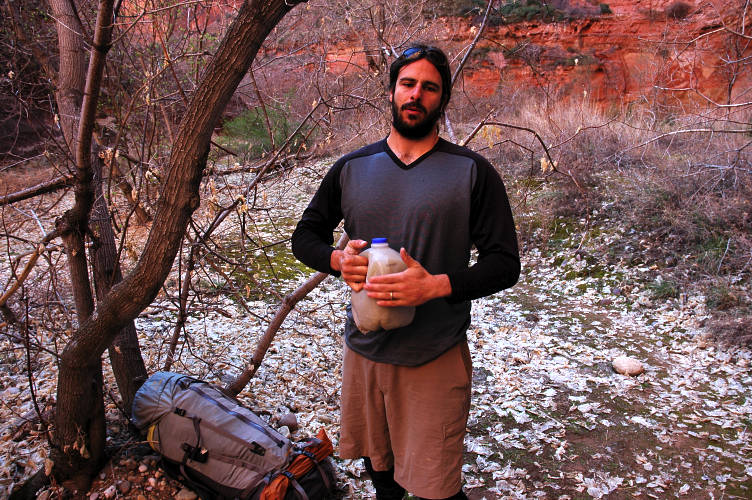
Our journey was going to change radically and we all knew it. We were leaving the relatively safe confines of a known area, where there was only one way to go, for the openness of the Sand Hills, the name of the land above us. We would have to make our own way, as best as we could, with whatever water we brought with us. We would have a dry camp tonight and hopefully not be too thirsty on the walk back to Wire Pass and the cars tomorrow. Or we might get lost or turned around or it might be farther than I thought to Wire Pass and we'd have to spend a second night without a water source.I was looking forward to this immensely. Making things up as you go, using your imagination and wits, that was fun. Unstructured play time, to use the words of faddish child development experts, was rewarding and enlightening in a way that structured activities, dictated by another, could never be.
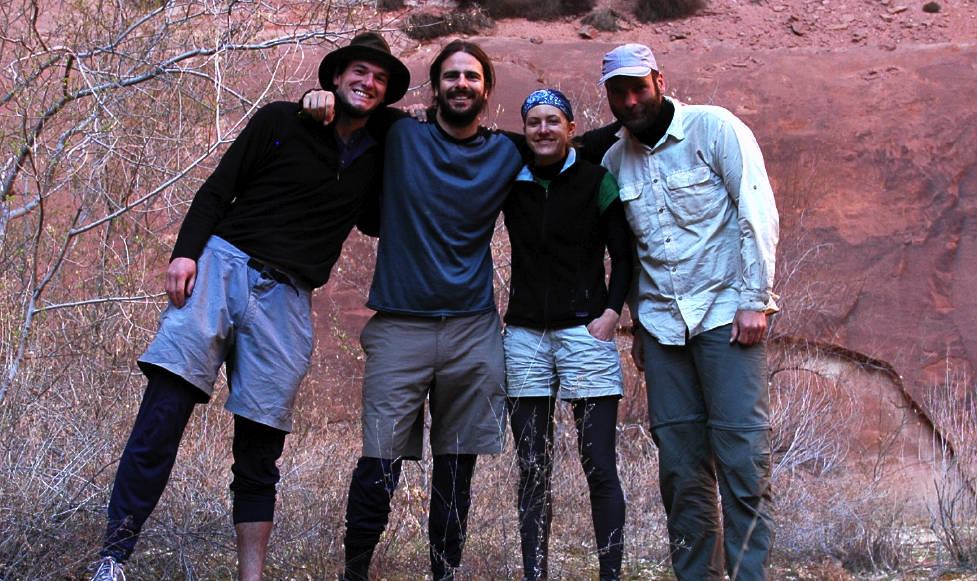
We packed up, with all our water, and began the trek out. It took 10 minutes to get to the start of is called the Adams Cattle Trail. The Adams trail was an attempt by a rancher back in the day to bring Paria river water up to the rim to quench the thirst of his cattle. The idea was to blast a trail down the rock to the water, then run a water pipe up the trail to stock tanks on the rim. A motorized pump would push the water against gravity up to the cows. It didn't work too well. Andrew started up the scrambly start, moving up to a plateau above us, with the rest of us following in short order. The climbing was not difficult.
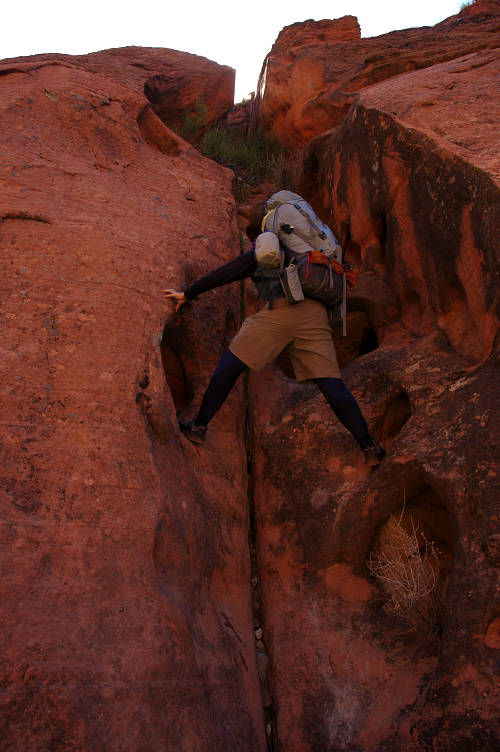
On top, and in the sun, we stopped to strip off clothing and apply sun screen. I kept my long sleeved shirt and long pants on, knowing what desert hiking was like. Nate apparently did also as he kept his pants and shirt on as well. I felt almost relieved at being able to see more than just a small slice of sky: The openness of the plateau gave a sense of freedom to the trip, freedom beyond what we had before. I took a deep drink of water and stared.
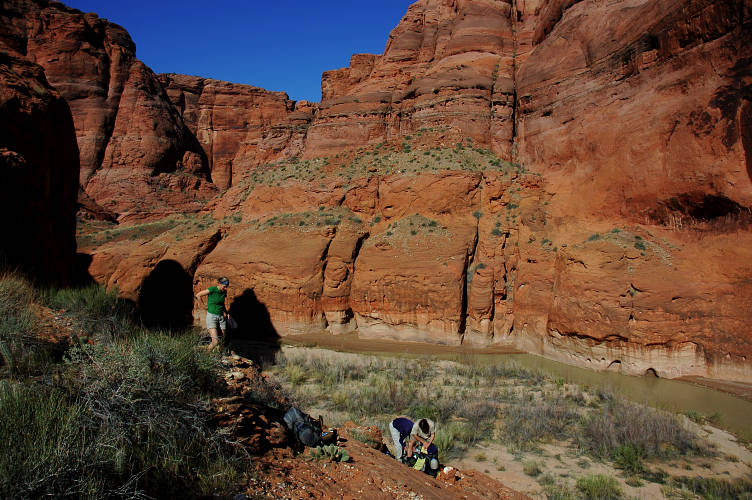
Suitably attired, we began the trek up. The Adams trail isn't so much a trail as it is a route. There was a well worn track in the sand that climbed steeply up the hillside toward the rim. The hiking was hard for a while, as for every foot of vertical progress you lost four inches from sand slide. But we plodded on up to where the sand began to give way to rock. Cairns occasionally marked the way but route finding was becoming increasingly difficult.
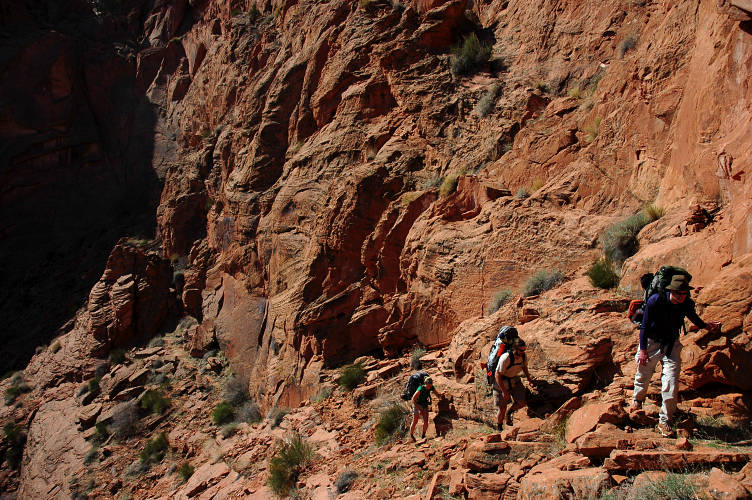
I managed to keep on track with the help of the others, but when I came around a bend and saw a lot of open air I knew we were lost. Or, at least, going to have to return to the Paria and walk all the way out to Lee's Ferry: The way were going was far too exposed and dangerous to go on. Fortunately, I had just missed a sharp turn in the route a few feet back. The track switchbacked up the rocky hill side and was never dangerous or exposed. Just make sure not to trip.
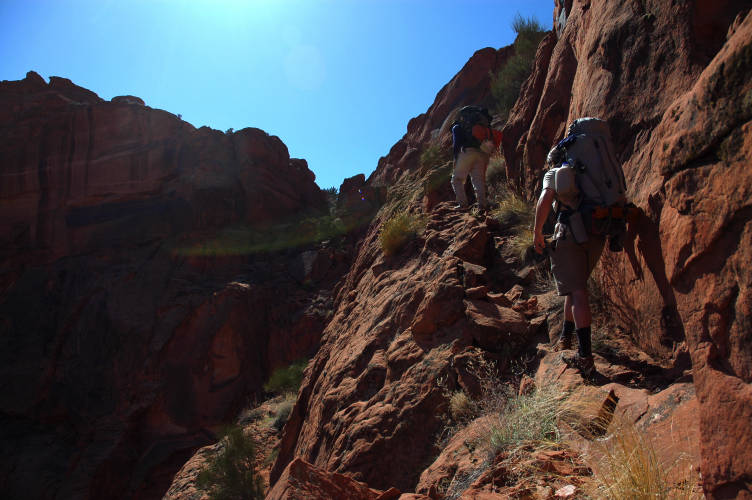
We made steady progress toward a break in the rim, a pass if you will, which was clogged with vegetation.
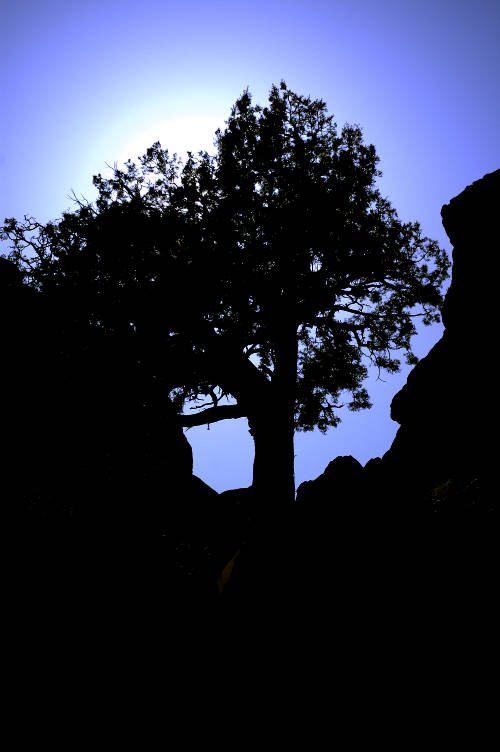
Breaking free of the vegetation, we stumbled out onto the rim and the open, free air of the expansive plateau called the Sand Hills. This required a celebration, which usually meant rum, whiskey, or carrot, but we were on a limited budget of water and had to settle instead for some water and candy bars and a little time in the shade.
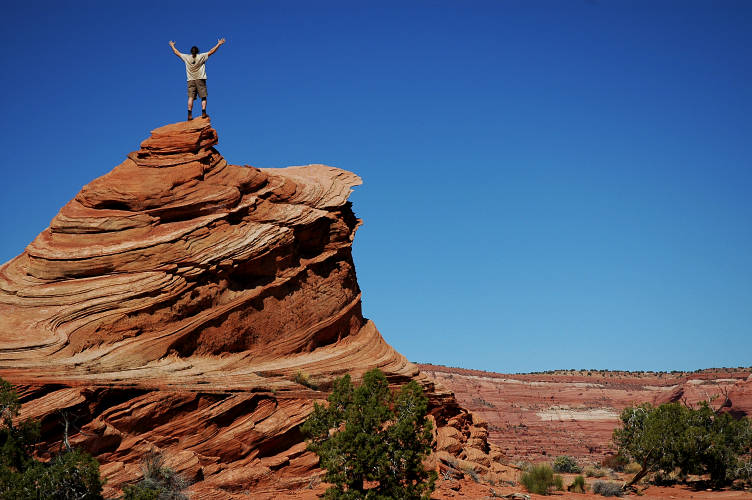
I took the maps and my compass and went wandering to figure out where to go from here. I couldn't recognize a whole lot on the map, which is common in open desert hiking. It is easy to read too much into features and forget what is in front of your eyes. I took a bearing and walked back to the others. After a good rest, we found that Nate's gallon jug of water was leaking from some small micro puncture. We filled our empties and drank the rest. Hopefully we would have no more punctures.
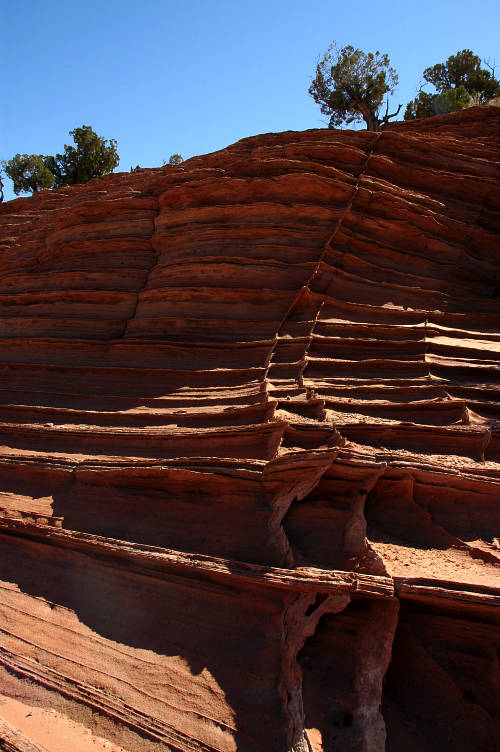
We stood around and looked at each other. I realized the others were waiting for something to happen. So I started walking. The landscape was open and inviting to me. We could go wherever we wanted to, which ever way was easiest. Occasionally I shot a bearing or looked at the map, but mostly I just reveled. There was something about being out in the open air that was supercharging my mind.
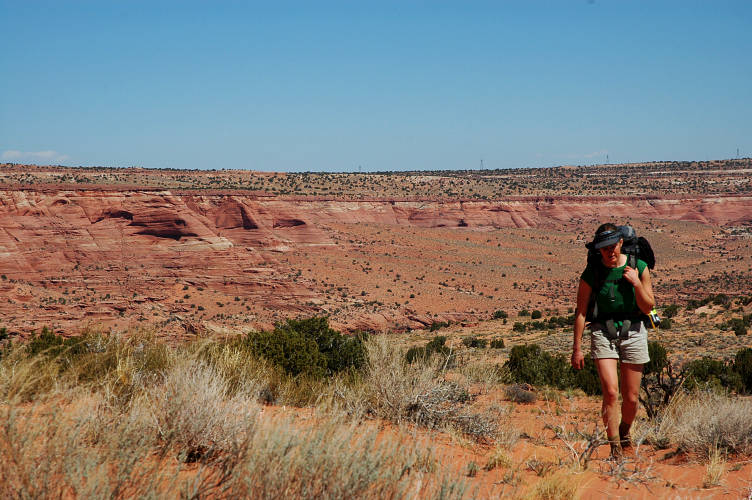
True to its name, the ground was mostly sand. But there was a surprising amount of vegetation, from the ever present sage to huge juniper trees and small bushes. There were dry washes and red rocks and, in the distance, a huge gorge where the Paria ran south to Lee's Ferry. The wind blew and I smiled. I kicked dried cattle dung and smiled. I crushed juniper berries in my fingers and smelled the fragrance of the desert. I smiled.
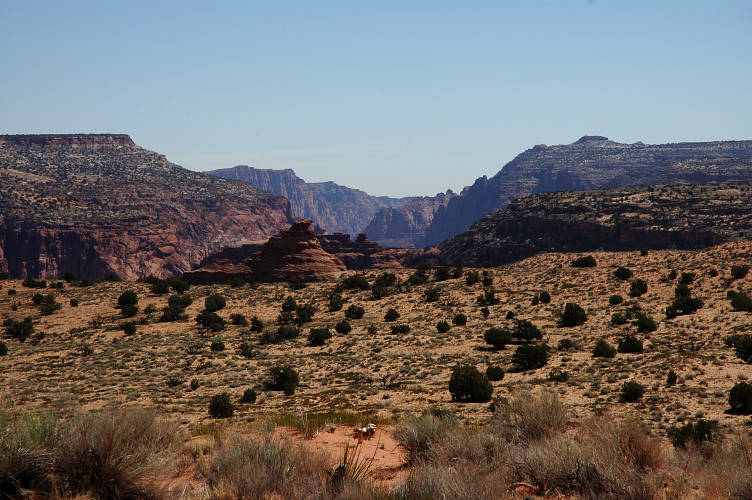
I could feel it back in my blood, in my heart and soul and mind and body. I had felt it before. I had not felt it for some time. A State of Grace. That temporary time when everything, no matter what, is flows into the next. Is perfect. Is exactly as it should be. It isn't a lucky sequence of events. Indeed, the events do not matter in the least. It is that time of complete recognition of the world around you and the world beyond you. By understanding everything, you realize that nothing is bad, and consequently nothing can be good and hence have understanding. It never lasts.
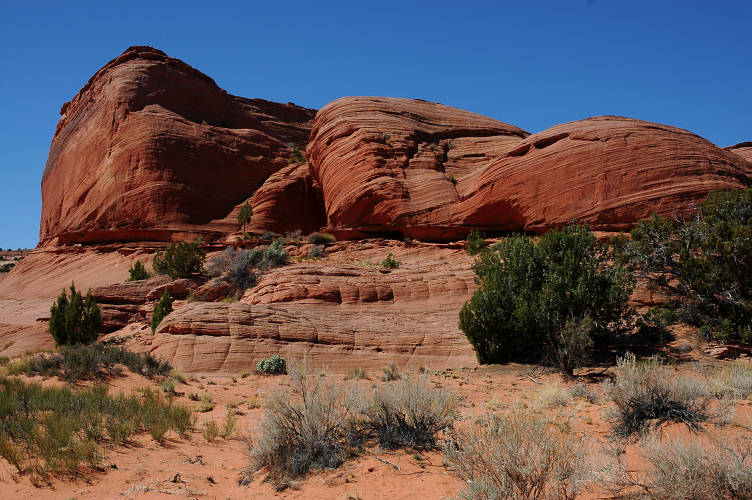
Some people meditate for it. Others jump out of a plane for it. Some people paint to reach it or play the trumpet. I was walking for it. It isn't a state where you wander around like a zombie, not reacting to the people or events around you. Andrew and I had talked and we had looked at a map occasionally. We had had debated going into washes or staying high. I was a fully functioning, normal human. And that was the difference. I was completely Human.
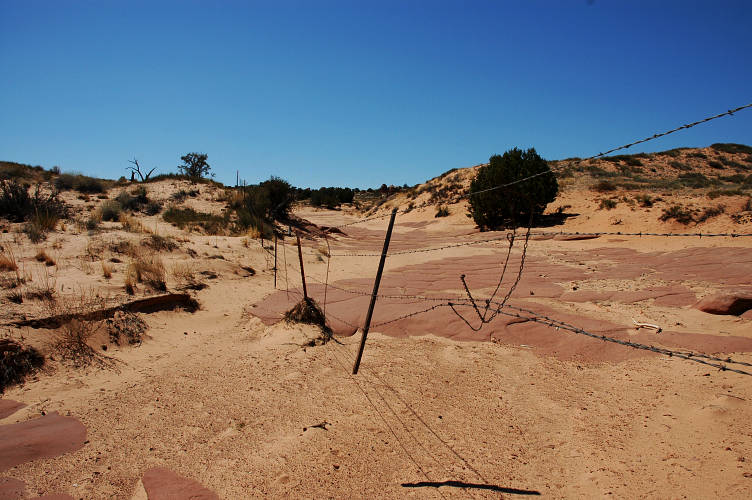
The others had to stop me to take a break. We had been moving for three hours and I hadn't even noticed it. We stopped under the shade of a large juniper with many dried cow turds. I took a long drink of water and ate a Snickers bar, smiling and chatting. Tera's legs were starting to show the effects of hiking in the desert in shorts. Her arms and neck, even with the sunblock, showing what the sun can do to uncovered skin. After thirty minutes of rest, we set out again. The State of Grace continued.
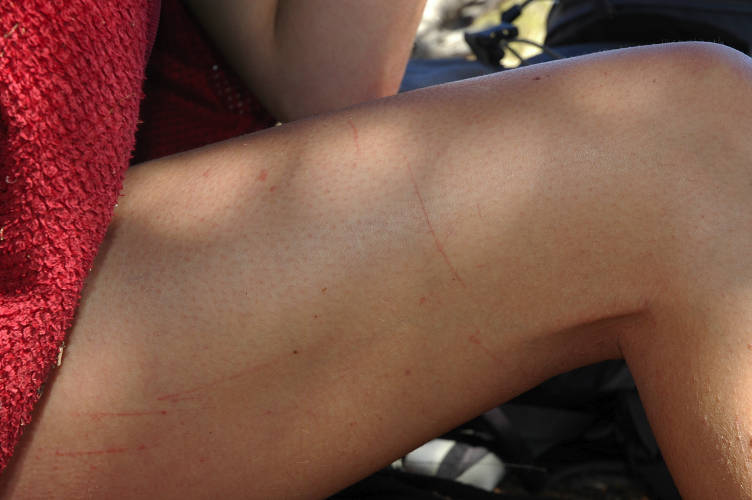
It could no longer be adrenaline. It wasn't excitement. It was that other thing. If the Devil himself had materialized on the spot in a cloud of smoke smelling of brimstone and the Abyss I would have pulled his tail and challenged him to a duel. Pistols at 10 paces. I was unstoppable. I wondered if the others felt like I did. I wondered what they were thinking about. Thoughts of home? Cold water? Some one special that they might never see again? The Archangel Gabriel?
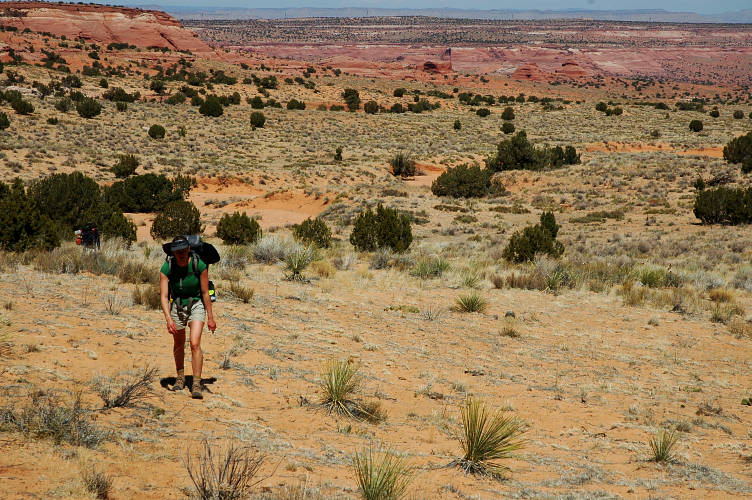
The land was slowly sloping upward, heading for a rise. We passed a few cattle here, which scurried away to join other members of the herd. They scurried along parallel to us to join a few more. Soon we had a mini cattle drive going on as the frightened animals tried to run away by running with us. Eventually one smarter than normal cow turned perpendicular and led the herd away from us. That's what happens when you breed for stupidity. It is the future of the US.
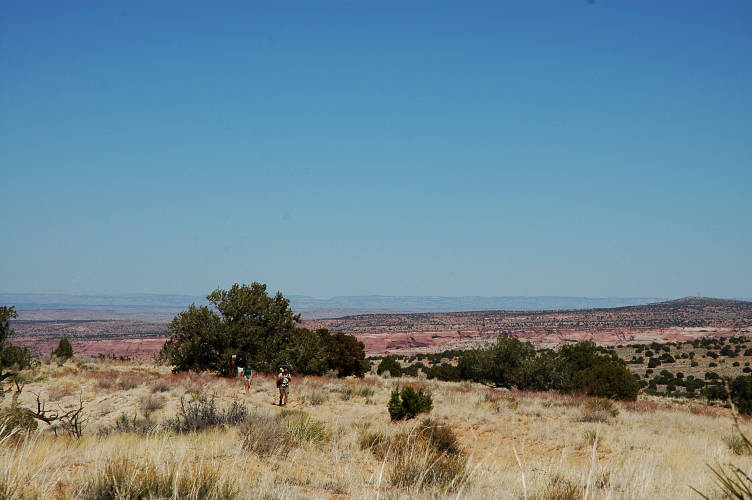
The others were nowhere to be seen. My mind had been running at full speed again and my body had followed pace. I found a shady juniper to sit under to wait for them. We had a decision to make, after all. Our route had to get through a chain of low hills and I had originally intended to simply end run them to the south, then come back north, instead of running a narrow gap in them. But the narrow gap was in sight and looked kind and gentle and inviting. I waited.
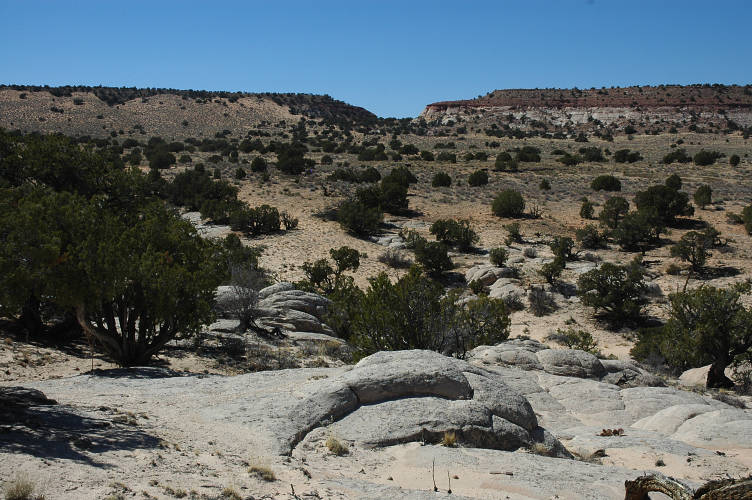
The others arrived and we consulted the map. I told them what I thought and we were all in agreement. I was alone again within two minutes of setting out. I had no control over my pace at this point. I was moving and the speed didn't matter. I set a direct route, dropping into a wash and scaring a small herd and climbing out the other side. I moved higher and higher, passing an occasional prickly pear or cholla or Spanish bayonet. But never walking into one. I wasn't concentrating on an exact route or where my feet were, yet I went to the right place. Without effort. Casteneda wrote something about that, I remembered. At the top of the pass the world spread out in every direction. I stopped and stared. I put my arms out into the breeze like I had wings. And that was all I did for five minutes until the others arrived.

We rested and ate and chatted. Andrew and I picked out landmarks with our eyes and matched them up with things we saw on the map. If only we had more water, I thought. Another day's worth and we could explore some really fun looking formations, places where few people probably ever went. You couldn't drive to them and were a day from the nearest trailhead or viable jeep track. You had to walk here. That is the definition of a good place.
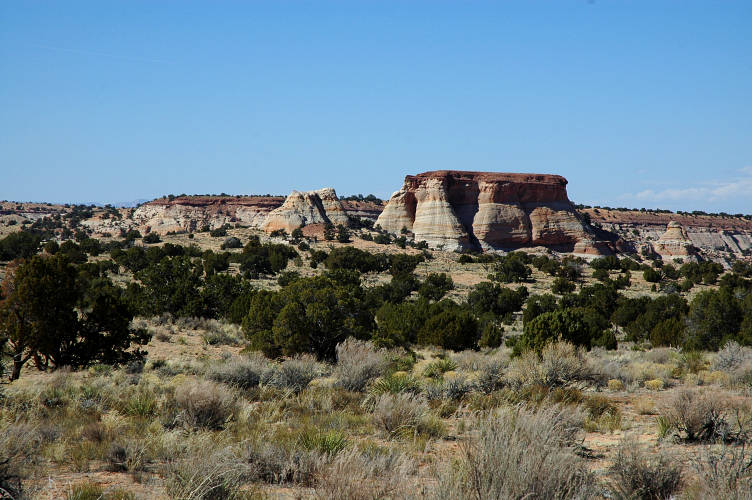
We were moving again. I still felt that Way. Up and down minor obstacles, around trees and cacti, along we went. The open air. Open range. When settlers first moved across the Great Plains they were either horrified by the expansiveness, or intoxicated by it. The desert is the same way. You either feel it or you don't, with no middle ground on which to stand. The desert, or really any place where life is difficult, is a place of perfection. Evolution, you see. The things that exist here are perfectly adapted to life here. It wasn't just the plant life. There were mammals everywhere, with huge jackrabbits dominating the fauna. And with jackrabbits there had to be coyote prowling about.
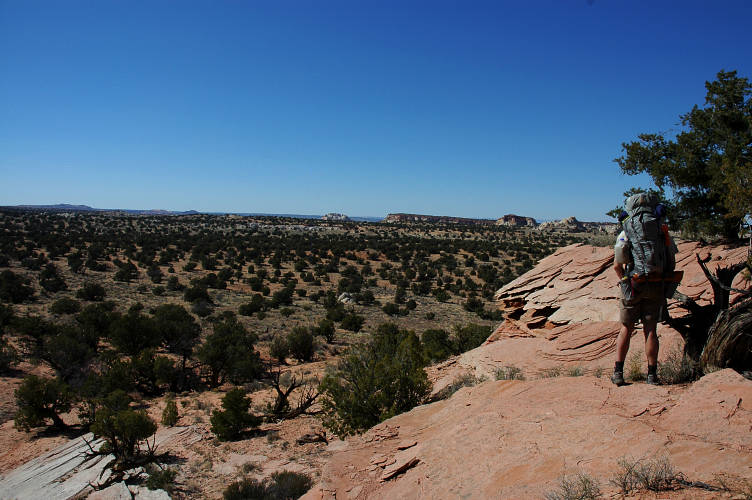
One of the less pleasant obstacles to be negotiated was barbed wire. We had gone through some miserable looking examples, but now we began to encounter some more difficult ones, ones that we had to crawl on our bellies to get past. One of previous ones I had simply kicked over, crossed, and then stood back up. Now I was on my belly like some snake or dung beetle.
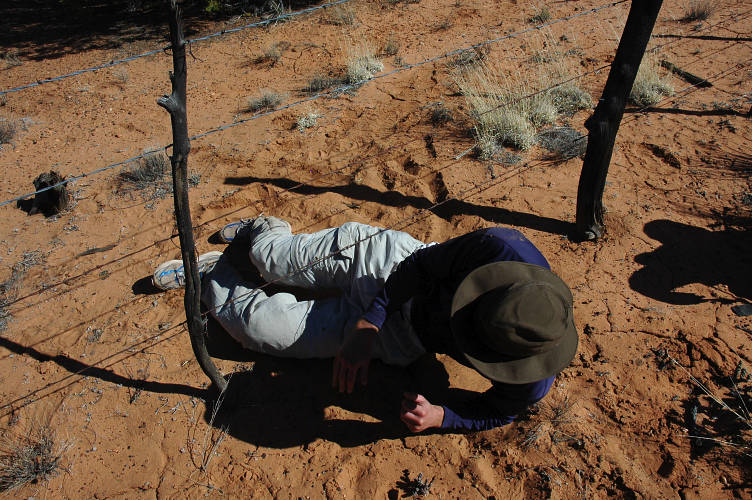
It was 5 pm and I felt like running a marathon or writing a novel or learning to play the cello. But it was time for dinner, it seemed and so we had to stop for a bit. I fired up my stove and started cooking up a fine feast of parmesan couscous with a packet of hickory flavored tuna tossed in and olive oil for lubricant. The others weren't eating. They hadn't been drinking much during the day and as a result were hurting, with little appetite. Over the course of our hour long break they drank a bit more water and started to come back to life, eating what seemed tasty to them. I was still bouncing around in my head, hoping to hike straight until the sun went down and maybe slay a dragon before bed.
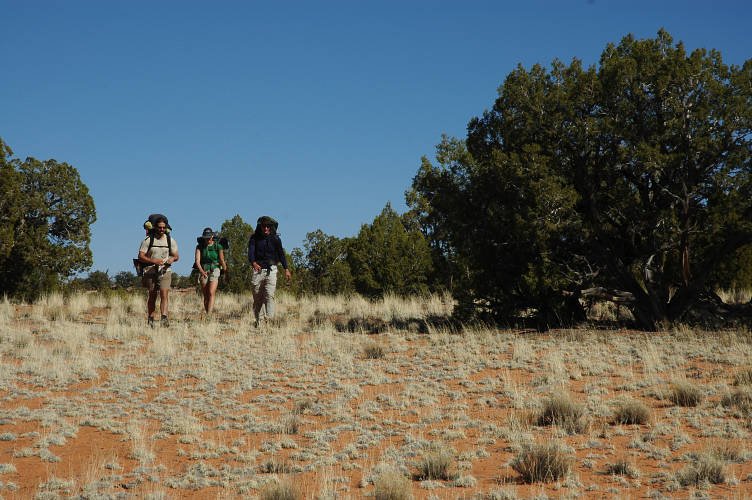
Tera put on a suit of all black as it was getting cool out with the sun on the far horizon and a wind blowing. Not cold, but cool. I put my arms out again and felt like gliding in the wind. I was home again.
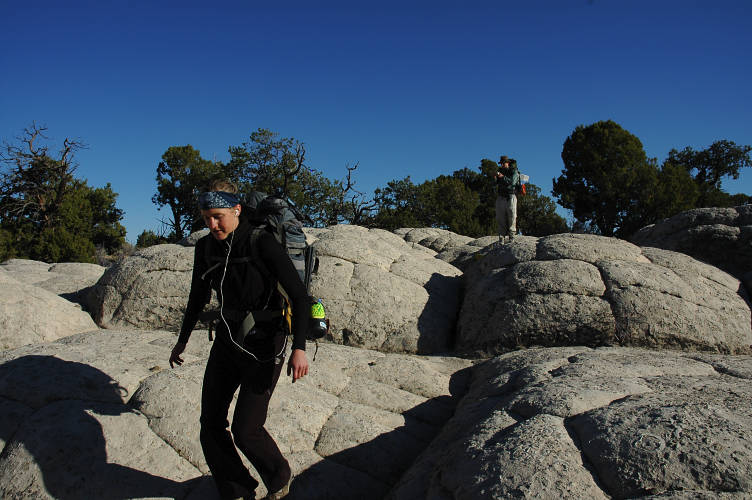
Joy is a funny sort of thing. When you're experiencing it you tend not to realize it or appreciate it. It simply feels like the natural state of things and that it can never end. True joy blends into the background of your mind. When you feel it begin to slip away you grasp at it, try to hold it and contain it, with about as much success as trying to grab a fart in a stiff wind.
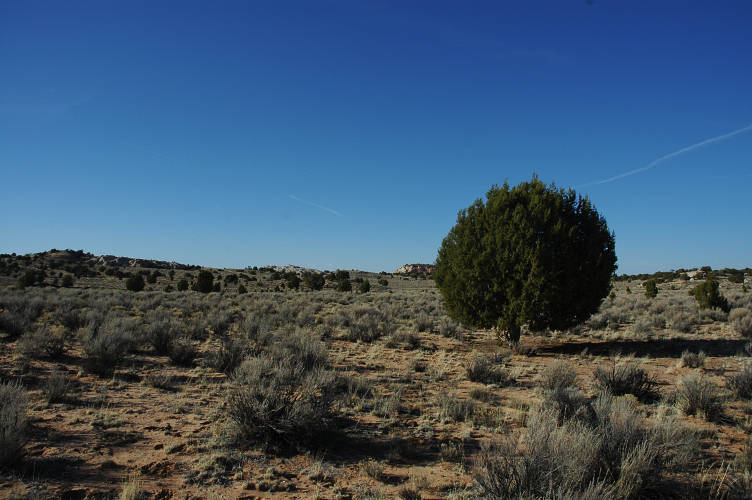
And with the passing of the Joy you're even sadder than you were when you started. You know everything that you lost and the world seems grayer than it ever did before. You're lonelier than before. A part of you is missing, the part that was inside the Joy that no longer is. But what if the Joy never really leaves you? What would you do differently if you knew it was inside of you and was just sleeping for a little while? What if you knew that you could wake it up whenever you wanted to?
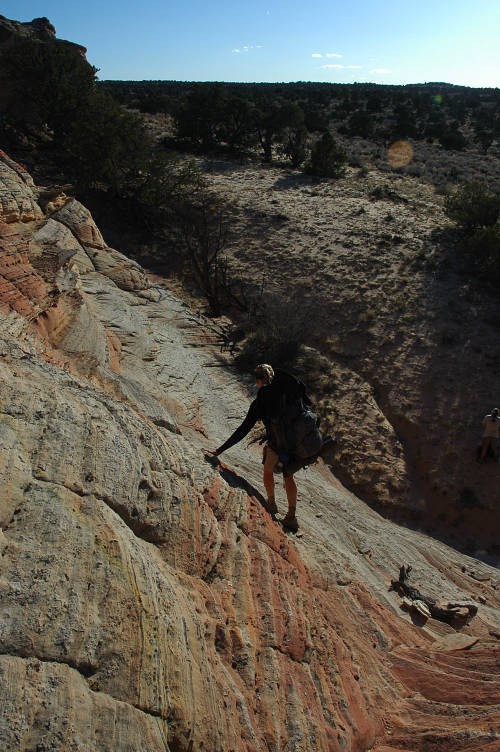
These are things that I have known at some point in my life, but that I forget occasionally. I seem to have them with me for a time, but inevitably they vanish under the crushing confines of settled, civilized society. I shouldn't be so hard on society, as there is nothing intrinsically soul-crushing about settled life. Rather, I should say, it crushes me. Others, seem to resist it. But I can not.

We walked along for an hour and a half before the others called it a night. We were at a pretty spot, with views all around us, and pretty juniper trees for shelter from the open sky overhead. It was a beautiful place. I took off my salt encrusted shirt and walked around in bare chested in the remaining sun. The cool wind blew across my skin, its caressing fingers soothing and comforting me. Tera put up her tent and Andrew and Nate settled on a spot a hundred yards away. I tossed out my sleeping bag under a juniper and had a few swigs of rum and a few more of water. I gave Nate a liter of water and had two remaining for tomorrow. We agreed to get up when it was purple out and start hiking as soon as possible. Now that was civilized, I thought. Our alarm clock is the color of the air just before the sun comes up.

Our alarm clock went off, as it always does in the desert. There is no snooze button and you can't change the wake up time without doing something un-natural, liking sleeping indoors with the blinds closed. The world was glowing a dark purple, the sun not yet over the horizon; it was still coming up in New York. No one was stirring, but I hoped people at least had their eyes open. If we were where I thought we were, we had about six hours of work in front of us. Two liters of water a piece for six hours would be just fine for the temperatures we would face. I crawled out of my sleeping bag and stood up in the cool breeze, watching the East. I stood for a few minutes, just looking for the crack of orange that would start the new day. I loved morning in the desert.
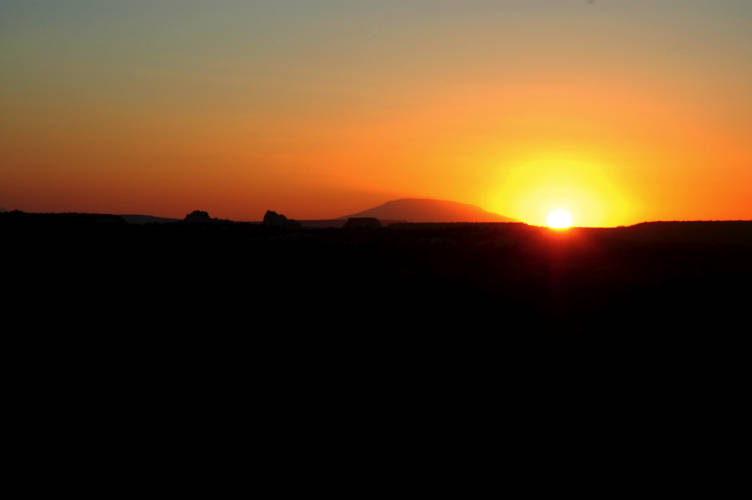
We were moving around 7 under perfect conditions, hiking toward what Andrew and I thought were Coyote Buttes. We had, I believed, gone further north than originally intended and were going to miss something on my map called Poverty Flats. Any place called Poverty Something has to be interesting, has to be investigated. Its like calling a place Purgatory Mountain or Death Rattle Valley or Hell For Sure Pass. Too bad. Just a little more water and we could do so much more.
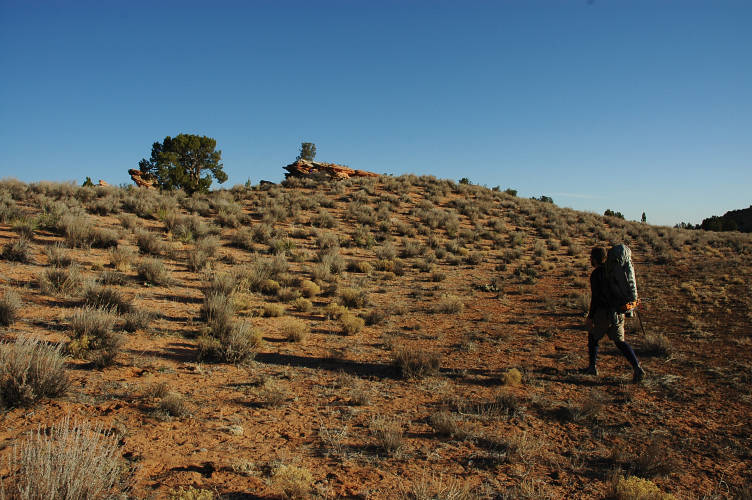
The land, however, was quite flat and that made the walking very easy, even with the constantly shifting sand underfoot. The large complex of rocks in front of us had to be Coyote Buttes and we made a direct line for the northern end of the range. There we would find the Wave and pick up a trail back to Wire Pass. We were making extraordinary time and I now thought we might make it back by noon. I walked into a Spanish Bayonet. Not a good sign. No, not good at all.
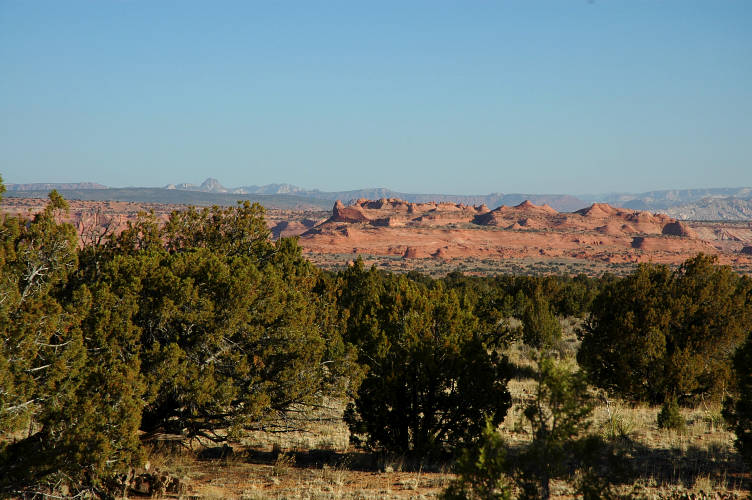
We crossed the flats and began to run into more and more red rock. The land was changing, at least locally, from sand to rock, and with it we lost most of the vegetation. I've written a lot of words in this account of my spring break loafing, but have barely written anything concrete about what the land looks like, or what the plants are all about, or the sort of fauna encountered, or what the texture of the rock was like.

When reading a book on nature the authors seem to spend a lot of time describing what things looked like and classifying everything in sight, complete with a lot of latin names and the more colorful local names. I usually skip over these sections as quickly as I can. If want to know what something looks like, I'll go there and have a look for myself. Indeed, I'd rather go myself and see for myself. What is important is not what something looks like or the specific name that it happens to be called, but rather what that thing, or object, or conglomeration, happens to do to you.

This is the beauty of using the internet as a medium for communicating about nature, at least about nature. Not Nature. The senses record nature. The whole being understands Nature. Back to the internet. Rather than trying to find odd combinations of words, or complicated analogies, to describe simply rock, I can just point a camera at the sucker and fire away. Even better, anyone can do so. The internet is egalitarian.
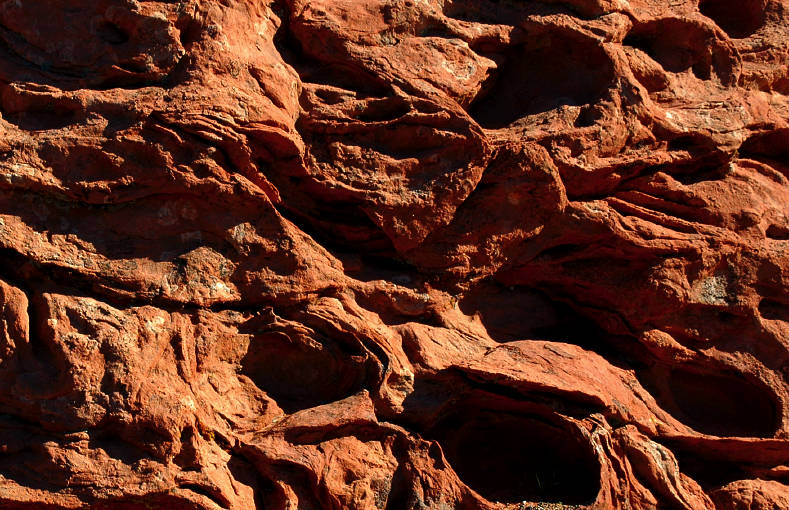
I was feeling pretty good about things, but there was an itch in the back of my head, something warning me that something wasn't quite right. It wasn't just walking into the Spanish bayonet either. We climbed to a rise and took a break while Andrew and I looked at the map, took bearings, and generally tried to sort out where we were. We had plenty of landmarks to work with, both visually and topographically. But try as we could, we couldn't get all of the pieces to fit. No matter how we rearranged things, no matter what combination we tried, there was always one prominent land mark that was out of place. After 15 minutes, I had my best guess. I had managed to get everything to fit except for that pesky Steamboat Prow. It was on the map, but I just couldn't see it. It should be a big, obvious rock formation out to the east. But it wasn't there. I should have remembered the main rule of desert navigation. Of navigation in general. We set out along a northern course.
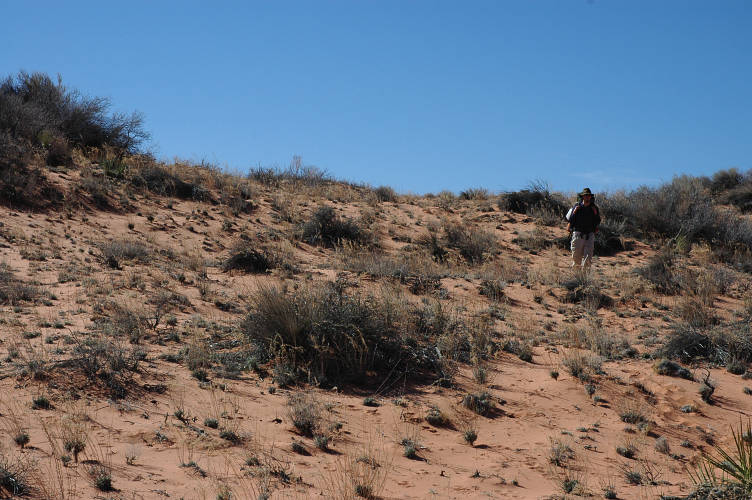
We walked north, keeping the Coyote Buttes on our left and made good progress. The Buttes were supposed to be famous landforms that held the Wave, a very pretty bit of art courtesy of nature. Looking over, none of us wanted to investigate: It looked about as interesting as the previous things we had passed. Admittedly, those were pretty spectacular, but none of us really wanted to prolong things much further: Water was low.
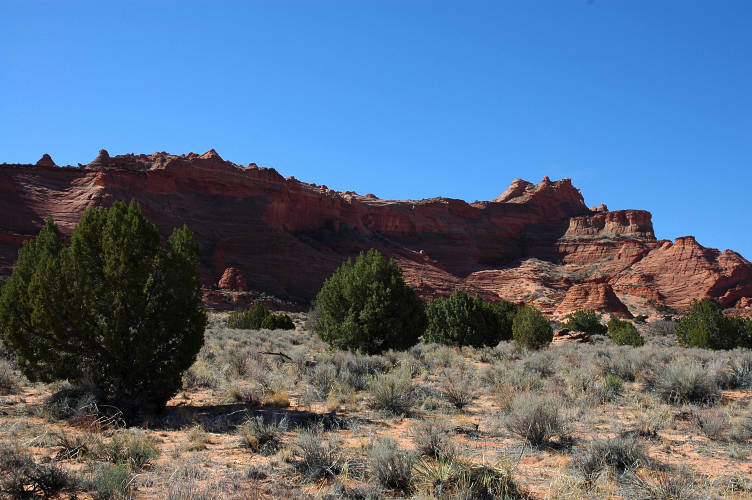
And so we cruised along, running due north, with our eyes peeled for a trail back to Wire Pass. A pleasant juniper offered us shade and place to relax for lunch. We were 30 minutes from the cars, so we could definitely lounge. After a forty minute break, we set out once more. And then we hit the upper rim of Buckskin Gulch. And that was definitely a problem. It shouldn't be here. If anything, we should be able to stroll into Buckskin Wash and casually walk back to the cars. We were in the wrong place.
But at least we weren't lost. We couldn't be lost because we knew where to go. Just follow the rim to the west and that will get you to the cars. The problem with this was the land. Although the land we had crossed had been very flat, it was now rolling with a lot of sand and the hiking was hard. And not direct: The rim wasn't a straight line. To make progress we had to go away from it, then parallel it, then hope for the best. Two hours, several pointless scouting trips made by myself, and one water pocket later I finally figured out what was happening and where we had gone wrong.

Cresting a rise and looking down at the Buttes and the Wave it struck me all at once. The rock formation that we had originally taken to be Coyote Buttes was actually Steamboat Prow. That was why I couldn't place it on the map! We had gone far too north and not far enough to the west and had hit Buckskin Gulch far too soon. At this point it didn't really matter. Thanks to the water pocket that I had stumbled across, we now had plenty of water and thirst wasn't much of an issue any more. All we had to do was find the trail back to Wire Pass. How hard could that be?

First we had to get down to the Wave, and that took a little scouting to do, along with a few misdirections. For the first time in a while we actually saw the foot prints of some one not in our little group. But only a few: The blowing wind erased the sand quickly. Several cairns, heading in varying directions were spotted and Nate left to scout one of the routes while Tera scouted a route requiring a steep climb up slick rock to where a barbed wire fence sat. I sat on my backside. Nate returned a few minutes later with a report of many tracks and more cairns and, as Tera's scouting trip was inconclusive, we headed off that way.
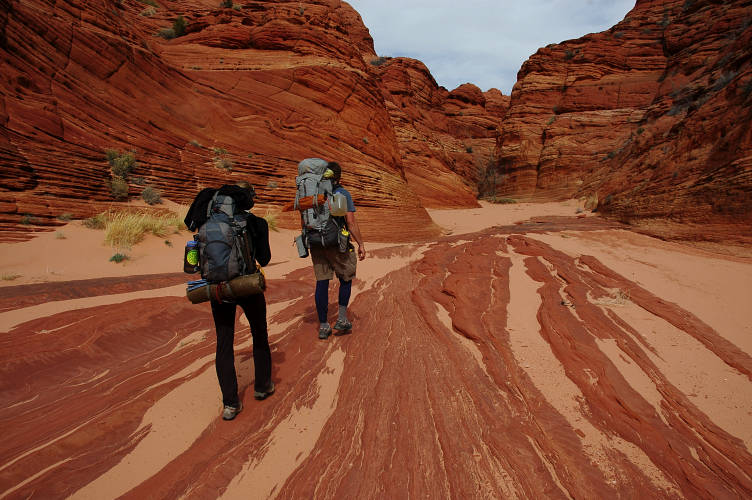
The cairned route ran into a wash and down into a slowly deepening canyon. I thought to myself how marvelous a way to end the trip! A tight slot canyon running back into Wire Wash was just what I was looking for.
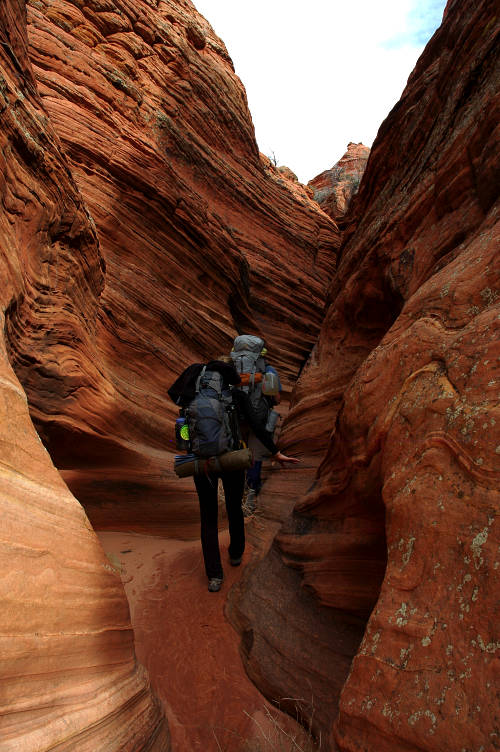
We were all oohing and aahing at the slot. It got tight enough that we had to take packs off to shimmy through some of the turns and drop offs.
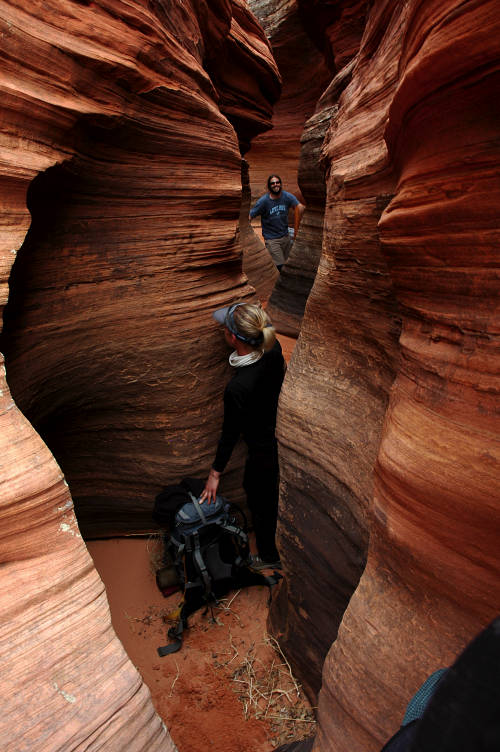
The light coming in from above lit up the slot and I kept thinking that I had seen the place before. It clicked just before Andrew called out from in front. I had seen the place in hundreds of photographs that people take of the Wave. Want to take a picture that has been taking thousands of times before but never fails to stun neophyte viewers? Take a camera and tripod into this slot in the late afternoon. Put camera on tripod and take a picture of the light coming in from above and illuminating the slick rock. Not very creative. I didn't want to try, and didn't want to sit here until the light was right.
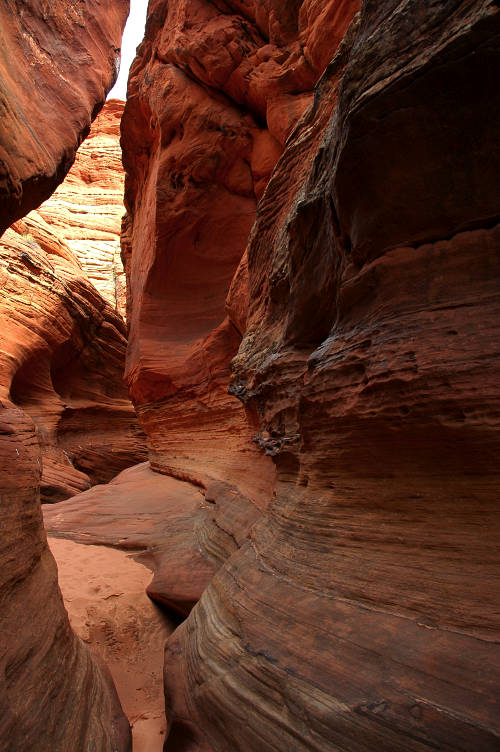
And what did Andrew cry out about? Well, that he had run into a drop off into a cess pool, and beyond the cess pool was a long drop into Buckskin Gulch. We had been gulched-out once again. We had to go back. At least the slot was pretty. Back we walked through the slot, into the wash, and back to where Nate and Tera had gone scouting. Andrew and I climbed up the steep incline to the barbed wire fence and walked a bit beyond. We found tracks and cairns and called the others up. This was the way.
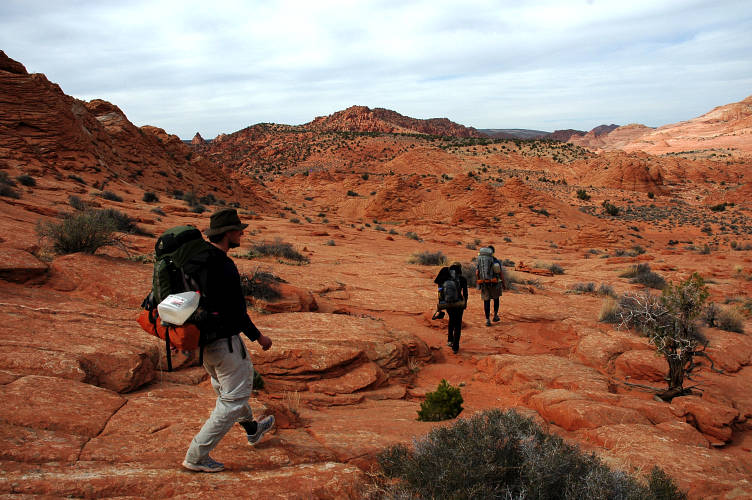
I started to feel sad now that all the navigational issues were over. Now that we were back on trail, established trail with signs warning of various dangers and prohibiting certain activities. The car was close and soon we would be back in society. In a few days I'd be at home and have the structure of society to deal with once more. A structured life is a good way to get things done, but a terrible way to live. Have a schedule, have a plan, have goals. Bullet point your life. The Purpose Driven Life. Some idiot wrote a best seller about that. People give themselves End Results but never consider the process in the meantime.
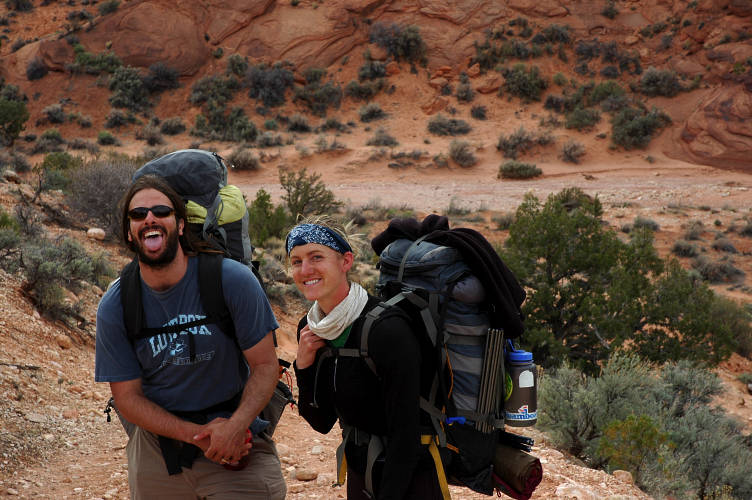
When I get back, I swore out load, I'm setting myself the goal of writing a best seller called the Process Driven Life. It will be all about enjoying what you are doing instead marching in lockstep toward some End Result. Toward some purpose. Toward stagnation. I'll encourage people, I told the rocks, to ignore looking at the function of a thing (what value does this have for me?) and instead look at the thing itself.
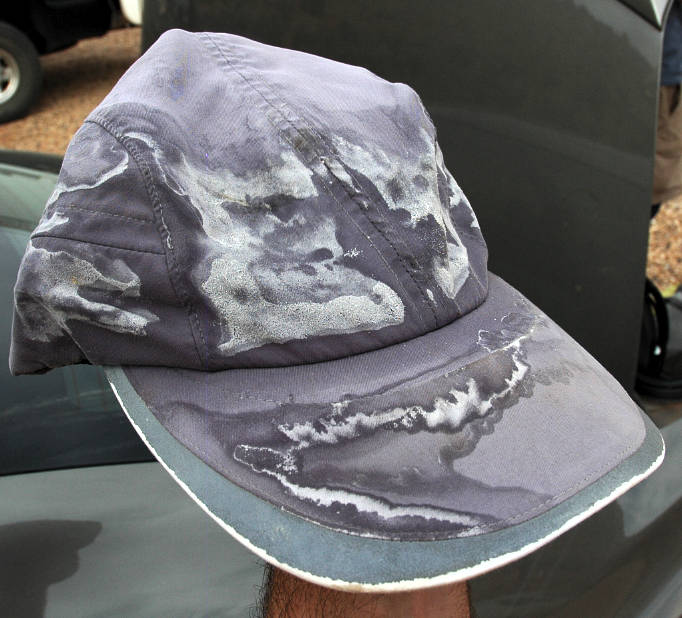
I said all these things but knew that I would never do so. Not from laziness, mind you (for I am, if nothing, lazy), but rather because it would be pointless. They've been written about by many cultures since the beginning of time. Stoics, Zen mystics, Buddhists , Taoists, Transcendentalists, Sufis. People far wiser than I have written them. And, worse, you can't read about them in a book and grasp the idea, though that might be a start. You have to spend time working on it. Trying it. You have to do it. You can't just read about it.
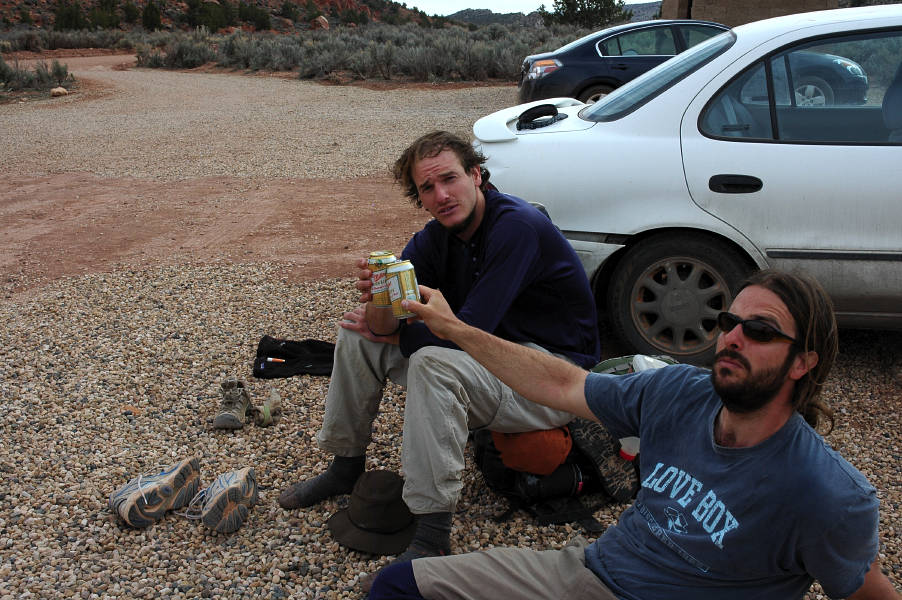
The man with the plan who wrote that silly book, and his friend that wrote about what successful people have in common, would tell you the same thing that I am. And, so, what is the difference? I don't want you to do anything. I want you to be something. My friend Jonathan put this really well when asked about one of his long sojourns in the wilderness: My trip wasn't about doing something, it was about becoming something.
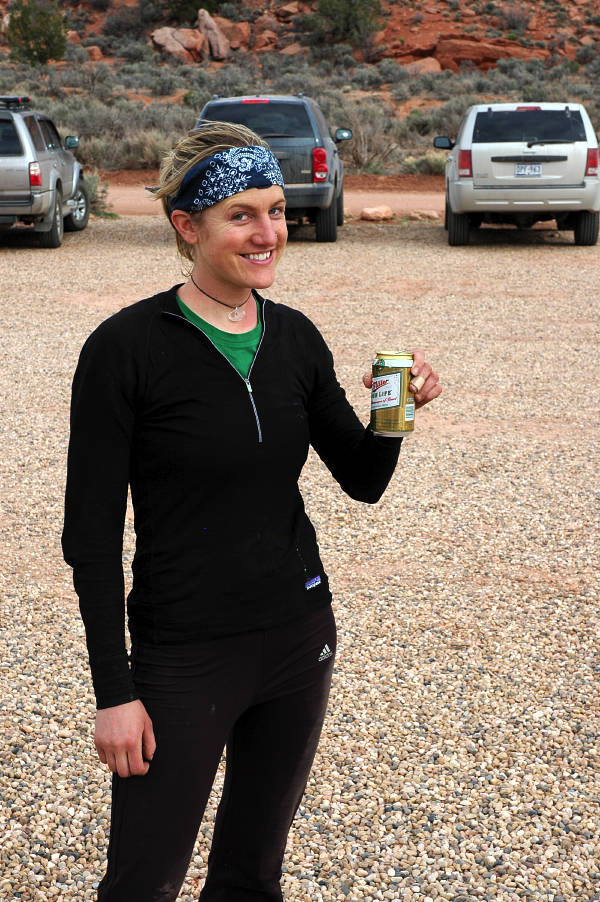
How's that for a measurable assessment? How could you ever possibly know if you're done? After all, if your goal is to earn a PhD or walk across the country or wear silk shirts or become a CEO or to prostitute your body or race cars or be a professional athlete, well, you know when these things have happened. You know when your net worth breaks $1 million. How do you know when you're a better person? How do you know when you've cast of strivings, yearnings, desire for something, for someone. After all, isn't it a desire to have no desires? That is a lot harder, but fortunately there are people smarter than Rick Warren and Stephen Covey. Like the Buddha. Like Jesus. Like Lao Tzu. Like Abbey, Muir, Thoreau, Dillard, Tolstoy, Hesse.
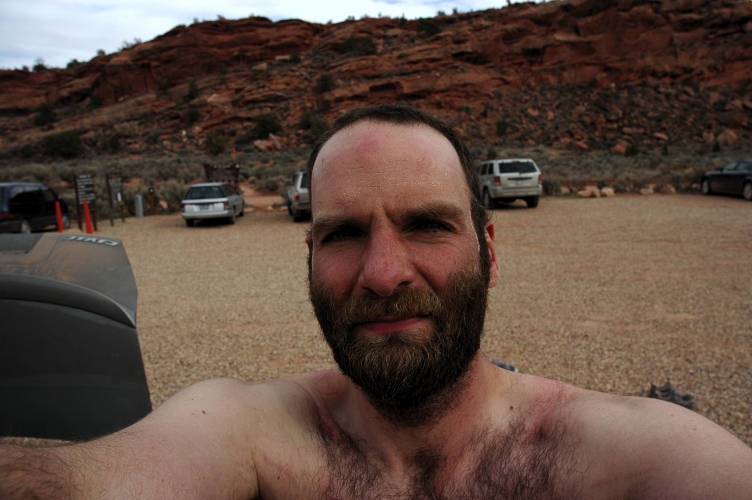
I sat in the breeze in my pink chair, sans shirt, and drank from a can holding the champagne of beers. People would ask me when I got back home what I did for spring break. I could honestly tell them that I tried to do nothing at all. Andrew and I were facing a long drive back to Tacoma and only a couple of days to do it in. In a little over three days from now I'd be wearing a button down shirt and slacks that I had to iron. I'd wake up at the same time every day, shower, dress, eat breakfast, and be gone from my apartment in 30 minutes. The structure would be back. I'd just have to remember to keep going. Forgetting Jerusalem meant oblivion.
















































